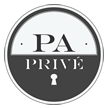You are finally there sitting in front of the interviewer and now you want to talk about all you have achieved so far. But wait! You must not forget that no matter how much skills and experience you have, your future job does also depend on impression, gut feelings and instinctual reactions. So, let us talk psychology!
Get hired using the fruits of psychological research on interview technique.
The most important predictor of who will be offered the job was a magical and mysterious quality: the pleasantness and likability of the candidate!
What were the behaviors that communicated likability? They were very simple
Mental imagery
If top athletes can successfully use mental imagery to improve their performance, then why not job interviewees?
Try to cut all the fillers
I’m talking to, like, you young people! Yes, you know, like, who you are, don’t you? Or, like, maybe you don’t? Whatever.
FYI: one study has found that interviewees who overuse the word like, and put in, like, too many, errr, fillers, were found less professional and were less likely to be hired.
- Small talk. Talk about something that interests both you and the interviewer, even if it’s not about work. You notice a picture of them fishing, and you share fishing tales.
- Praise. Find something you like about the organization they represent and compliment it. Or praise or compliment the interviewer in a genuine way.
- Enthusiasm. Show your excitement about the job being offered and the company.
- Connection. Smile and make eye contact.
- Involvement. Show interest in the person interviewing you. Ask smart questions about the type of person they are looking for, and how the job fits into the organization.
Body Language
Emulate the body language of your interviewer by leaning forward, smiling and otherwise engaging during the interview. Ask specific questions about job duties and expectations. Be personable and friendly. If possible, use scheduling as a psychological advantage, selecting mid-week, mid-day appointments. You’re more likely to have the interviewer’s full attention than you if you meet at the beginning or end of a workweek.
Body language affects how others see us, but it may also change how we see ourselves. Social psychologist Amy Cuddy shows how “power posing” — standing in a posture of confidence, even when we don’t feel confident — can affect testosterone and cortisol levels in the brain, and might even have an impact on our chances for success.
Psychological studies have even showed that it takes only seven to seventeen seconds to make that first impression with someone new. Perhaps if we’re talking about interviews where interviewers are consciously reminding themselves to stay objective, the first impression may take longer to form.
Nevertheless, the point is that the faster you are in projecting yourself as a good potential employee during the interview, the higher the chance of you landing that job.
Smile and laugh
Countless studies have shown that smiling and laughter can build rapport between two people and a job interview is no exception. Although a job interview should be taken seriously, applicants who are able to make an interviewer laugh or smile are more likely to be seen as pleasant people who would be pleasing to work with.
Don’t underestimate the power of colour
Everyone knows that red is a power color. It still works (though you might consider using it as an accent colour).
Ask for a higher salary than you’re aiming for
When the subject of pay finally comes around, you’ve probably heard that it’s better to aim high and then negotiate down to your desired range. This is a psychological affect called “anchoring”.
People always have the clearest memory of first and last thing that happens, while the middle becomes a vague blur. So if you’re setting the time for an interview, try and be the first or last through the door.
All or nothing thinking
Of course you want the job very much. But if you tell yourself that you absolutely must get it, chances are you’ll increase the pressure and cause your anxiety level to rise even higher. Try to think flexibly and tell yourself that it’s not a life or death situation.
Control Fallacies
Watch out for this cognitive distortion in interviews. There are two types of control fallacies: Externally controlled and internally controlled. Externally controlled fallacies occur when we view our behavior and success as something that is beyond our control. In other words, we are helpless victims of fate and happenstance.
Externally controlled beliefs sound like excuses. It shows that you have no personal responsibility for your life. Nobody wants to hire someone who constantly says it was bad luck, fate or just not in the cards when something goes wrong or right.
The internal control fallacy is the belief that somehow you are responsible for the pain, happiness, failures, and successes of everyone around you.
Nail your next job interview by avoiding these common Top 10 job interview mistakes
What other interviewing tips do you have? Tweet Us @PApriveUK






